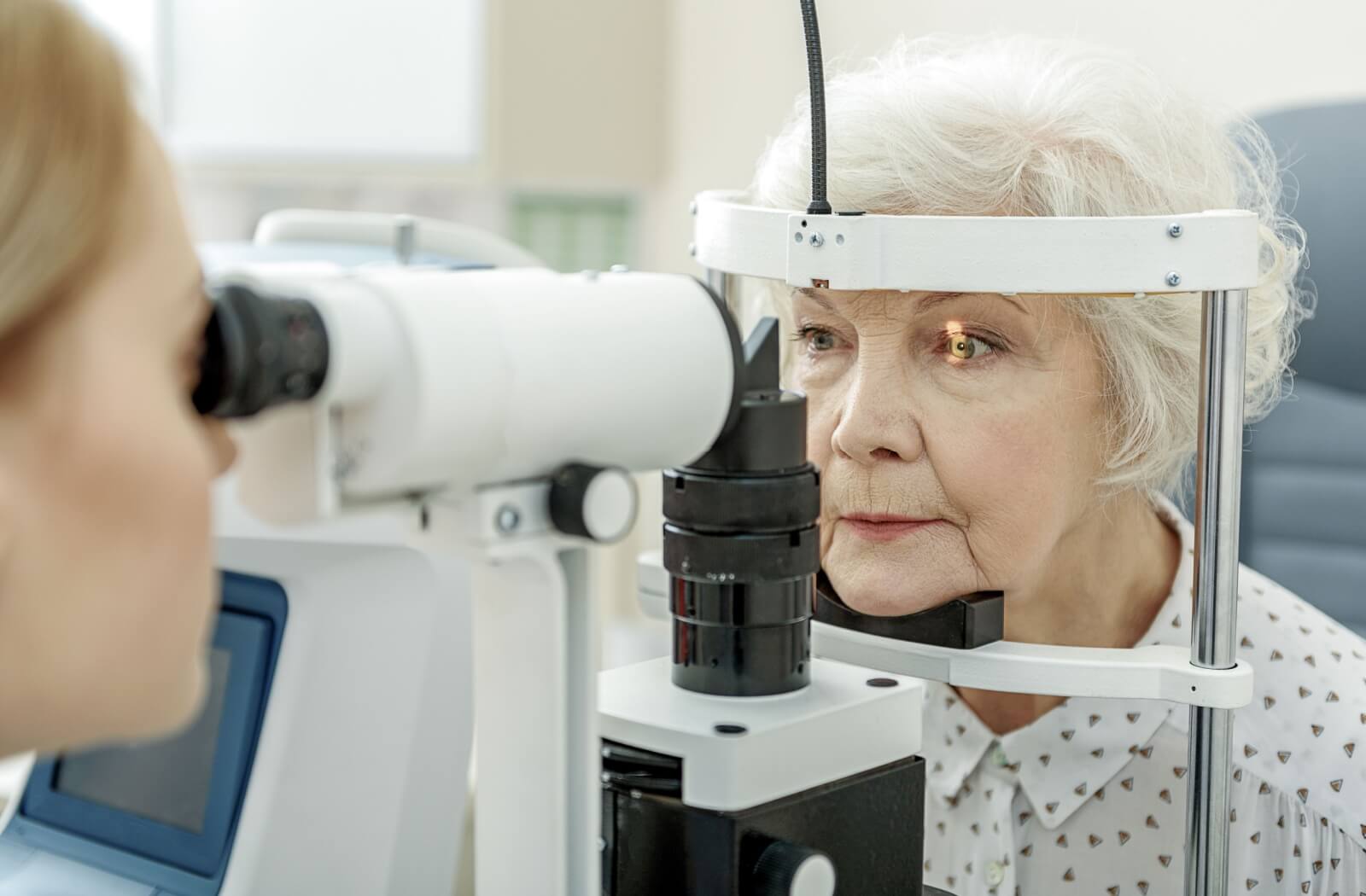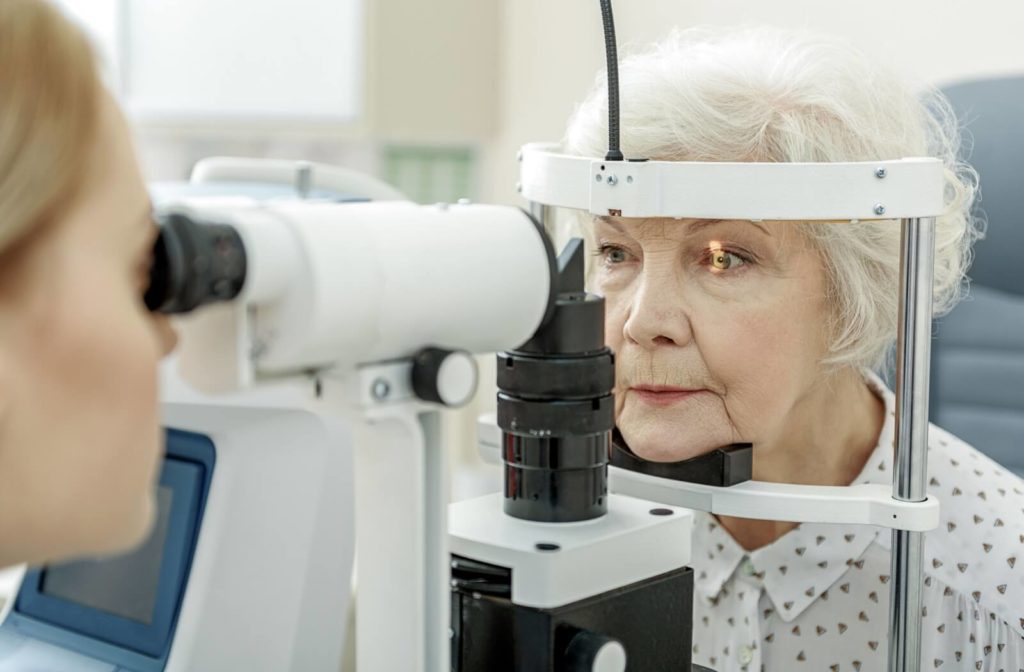Glaucoma is a leading cause of irreversible blindness worldwide, affecting millions of people each year. The silent nature of this disease means that many individuals remain unaware of their condition until significant vision loss occurs.
Among other risk factors, a genetic component can make glaucoma a hereditary eye disease. Understanding the genetic links to glaucoma and taking proactive steps can help protect your vision and that of your loved ones.
The hereditary nature of glaucoma, along with other risk factors like nutrition or physical activity, highlights the importance of regular eye exams. These can maximize the chances the disease is caught early so your eye doctor can monitor its progression.
What Is Glaucoma?
Glaucoma is a group of eye conditions that damage the optic nerve, which is essential for vision. This damage is often caused by abnormally high pressure in the eye. Glaucoma can lead to irreversible vision loss over time, making early detection and treatment crucial.
There are several types of glaucoma, each with its unique characteristics. The most common form is primary open-angle glaucoma, which develops slowly and painlessly. Other types include angle-closure glaucoma or normal-tension glaucoma, each presenting distinct challenges and symptoms.
Understanding glaucoma is vital because it’s a leading cause of blindness, especially among older adults. By recognizing the symptoms and risk factors, individuals can seek timely medical intervention and preserve their vision for years.
Types of Glaucoma & Their Symptoms
There are 10 types of glaucoma, with a few being more prominent than others.
Primary Open-Angle Glaucoma
Primary open-angle glaucoma is the most common type, accounting for around 90% of all glaucoma cases. It develops gradually, often without noticeable symptoms, until significant vision loss has occurred. Open-angle glaucoma is characterized by the slow clogging of the eye’s drainage canals, leading to increased eye pressure.
Angle-Closure Glaucoma
Angle-closure glaucoma, also known as closed-angle or narrow-angle glaucoma, is less common but more severe. It occurs when the iris bulges forward, narrowing or blocking the drainage angle formed by the cornea and iris. This condition can develop suddenly and is typically a medical emergency because it can quickly lead to vision loss.
Normal-Tension Glaucoma
Most forms of glaucoma result from increased eye pressure, but with normal-tension glaucoma, optic nerve damage occurs despite normal eye pressure levels. The exact cause of normal-tension glaucoma remains unclear, but researchers believe it involves a combination of genetic and environmental factors.
Risk Factors for Glaucoma
Several risk factors increase the likelihood of developing glaucoma, including:
- Age: People over 60 are at higher risk.
- Family history: A family history of glaucoma significantly increases the risk.
- Ethnicity: African Americans, Hispanics, and Asians are more susceptible to certain types of glaucoma.
- Medical conditions: Diabetes, hypertension, and heart disease can elevate the risk.
- Eye conditions: Severe myopia, eye injuries, and prolonged corticosteroid use can contribute to glaucoma.
The Connections Between Genes & Glaucoma
Research has shown that genetics play a crucial role in the development of glaucoma. If you have a family member with glaucoma, your risk of developing the disease is significantly higher. Studies estimate that first-degree relatives of individuals with glaucoma can have over 13 times the greater risk of developing the condition.
Several genes have been associated with an increased risk of glaucoma. These include the MYOC gene, linked to primary open-angle glaucoma, and the CYP1B1 gene, associated with congenital glaucoma. Researchers continue to explore other genetic factors that may contribute to the development of this complex disease.
Understanding Your Family’s Eye Health History
Knowing your family’s eye health history is crucial in assessing your risk of glaucoma. Speak with your relatives about their eye health and history of glaucoma or other eye conditions. Share this information with your eye doctor, who can use it to tailor your care and recommend appropriate screening intervals.
The Importance of Regular Eye Exams
Regular eye exams are vital for detecting glaucoma early, especially if you have a family history of the disease. Comprehensive eye exams typically include:
- Visual acuity test: This measures how well you see at various distances.
- Visual field test: This assesses peripheral vision.
- Dilated eye exam: This allows the eye doctor to examine the retina and optic nerve.
- Tonometry: This measures the pressure inside the eye.
- Pachymetry: This measures the thickness of the cornea.
Early detection of glaucoma through regular eye exams can help prevent significant vision loss and improve treatment outcomes.
Lifestyle Choices to Reduce Glaucoma Risk
While genetics play a significant role in glaucoma, certain lifestyle choices can help reduce your risk. Here are some practical tips:
Maintain a Healthy Diet
A diet rich in antioxidants, vitamins, and minerals can support eye health. Include plenty of leafy greens, fruits, nuts, and fish in your meals. Omega-3 fatty acids in fish like salmon and walnuts are particularly beneficial for eye health.
Exercise Regularly
Regular physical activity can help lower eye pressure and improve overall health. Aim for at least 30 minutes of moderate exercise, such as walking, swimming, or cycling, most days of the week. But avoid exercises that involve heavy lifting or straining, as they can increase eye pressure. It’s important to discuss any new exercise routine with your doctor or optometrist before beginning it.
Protect Your Eyes
Wear protective eyewear when engaging in activities that could cause eye injury, such as playing sports, using power tools, or working with hazardous materials. Eye injuries can increase the risk of developing glaucoma.
Book an Exam Today
Understanding the hereditary aspects of glaucoma is essential for those at risk. You can better manage your eye health by recognizing the genetic links, taking proactive steps to protect your vision, and staying informed about ongoing research.
Remember, early detection and familial awareness are vital in managing glaucoma. Regular eye exams, a healthy lifestyle, and knowledge of your family’s eye health history can make a significant difference.
Contact us at Insight Eyecare today to book an exam. One of our experienced optometrists can examine your eyes and check for any signs of glaucoma, among other eye conditions or diseases.







